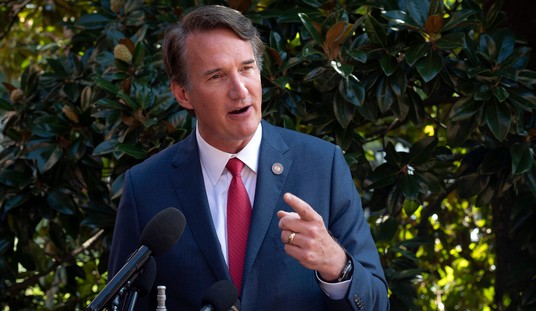There is an ongoing great exodus from blue states that's been happening for years. While the vast majority of people make their way to states like Texas and Florida (please stop, we're full) some people depart their respective blue state, not for the better economic opportunities and more stable system of a red state, but because they want their kid to have a childhood.
I was reading this recent article from Fox News about a family that fled California for the state of Idaho. The article struck me about how far we've drifted from kids having a proper childhood:
Taylor grinned at his parents as he rolled away on his push-bike, gravel crunching under the wheels. The three-and-a-half-year-old was headed to play with friends who live a couple houses down at the end of their quiet North Idaho cul-de-sac.
"He just can take off on his bike and it’s so safe," Ashley Manning, his mother, said. "Everybody just watches out for him."
I can remember when I was young, my school was a few blocks away. I lived in Pflugerville, TX, a small but growing suburb outside of Austin. I spent a good deal of my school life in that town and they were some of the happiest of my life. What stands out the most to me about that time was the independence I had.
This was just before the internet was capable of frightening everyone into becoming helicopter parents. In fact, my mom would kick us out of the house to go play with our friends. We'd spend hours riding around on our bikes, exploring the nearby wooded areas, and playing games in the street. Our parents didn't know where we'd end up and neither did we. We just went wherever our whims took us.
Such was our independence that Pflugerville's hike n' bike trail that cut through the town was a constant hang-out for us. It ran parallel to a creek that we'd spend time in. We'd follow that trail all the way to a Dairy Queen on the other side of town, eat our blizzards, and then make the trek back on our bicycles.
That was decades ago, and Pflugerville isn't the same town it was back then. Now, it's practically another part of Austin.
Now I have a son. He's over a year old and he already has that same independent bug his dad has. All he wants to do is go outside and run around, interacting with everything and anything that catches his attention. I'm pretty sure that if I let him, he'd run clear across the neighborhood and not care that I was nearby.
Obviously, that wouldn't do at his age, but I know that sense and desire for independence is going to grow. At some point, he's going to want to strike out into the neighborhood on his own and no matter how safe the neighborhood is, a lingering fear will always reside in the back of my mind, and it will only partly be about his safety.
For one, we live in Dallas, a place that has been so mismanaged for years, especially on the law enforcement front. Like many major cities, Dallas's police force is severely lacking in both officers and good policies.
The mismanagement has been such that the criminal/homeless problem has bled into my area. It's troubling to see homeless drug addicts walking around outside your neighborhood from time to time and hear your local daycare workers that they've had a rash of break-ins in the parking lot during daylight hours.
But then there's another issue that isn't criminal but should be.
It's my honest opinion that many parents don't allow their children to play outdoors alone or with friends because they fear, not a criminal element, but their own neighbors.
From time to time, you'll see stories of how parents had the police show up at their door on account of their children. Not because the children did anything wrong, but because the neighbors saw the children playing without adult supervision and decided to alert the authorities. Child Protective Services visiting people's homes is a real fear many parents have today and according to one researcher, the fear of CPS changes the way some parents manage their home, even without a clear and present threat of them coming to the door.
The organization "Rise," an advocacy group that focuses on the over-policing of parents, found that many mothers interviewed feel they need to go so far as to be careful what they say around others:
I learned how pervasive CPS is in the communities where the moms that I talked with lived. I asked, “Of the moms you know, of the moms in your neighborhood, how many have been investigated by CPS?” Many said over half. When over half of the moms you know or in your neighborhood have had run ins with CPS, even when you know you are a good mother, you worry it is something that could happen to you. It affected the way they parented and engaged with systems that are supposed to help families.
Another important thing to take away is how child welfare mattered to parents who weren’t involved with the system — moms who had never experienced a report. Collective knowledge and information-sharing taught them that you have to be careful about what you say to whom. They felt they had to be careful before telling a doctor they are homeless or telling a school sometimes they get really stressed out with their child.
This all boils down to overbearing authority striking at where the people are most vulnerable, and the sad part is that people's neighbors are helping this authority do it.
This is a sad, sad thing to see, but what's most sad about this is that this kind of authoritative nonsense affects our children the most. These people who support this kind of thing rob children of their childhood.
These kids can't go out by themselves thus robbing them of learning independence and problem-solving. Their spirit of discovery is held back and what we're left with is mentally troubled children. You saw this play out in a big way during the pandemic when children as young as five were expressing feelings of depression due to the isolation.
A solid system of law and order is a good bedrock for children to grow up in, but there also has to be a change in the culture. Once we establish safe neighborhoods, we have to let children return to the sidewalks and paths with their friends. We can't deprive them of that independence anymore. It's clearly not good for the child, and it's definitely not good for humanity.
No more soft-on-crime policies, and moreover, no more giving in to authoritarian busybodies.














